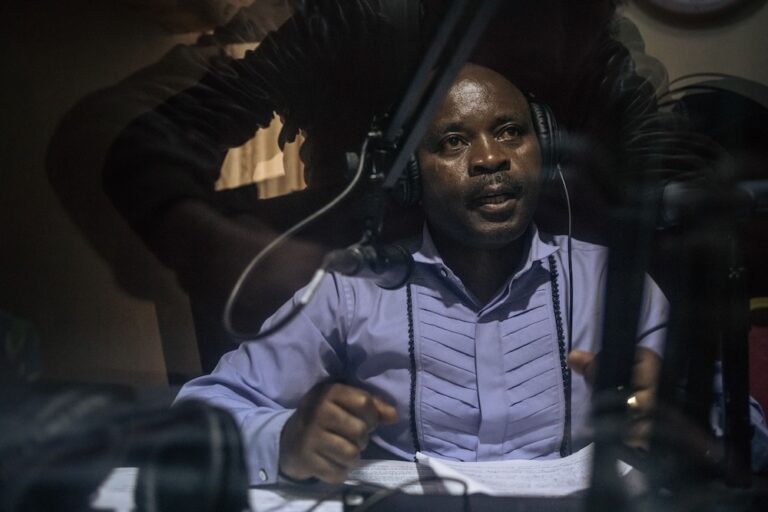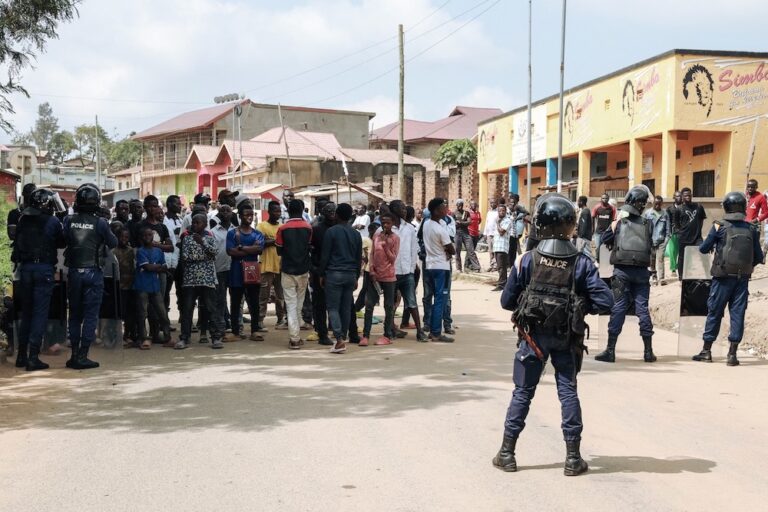(JED/IFEX) – Richard Malango, a cameraman with the Kinshasa-based private television station Tropicana TV, was arrested on 23 April 2003, in the morning. The cameraman was detained by officers from the Congolese National Police’s Special Services branch, while filming a demonstration by activists of the opposition Union for Democracy and Social Progress party (Union pour […]
(JED/IFEX) – Richard Malango, a cameraman with the Kinshasa-based private television station Tropicana TV, was arrested on 23 April 2003, in the morning. The cameraman was detained by officers from the Congolese National Police’s Special Services branch, while filming a demonstration by activists of the opposition Union for Democracy and Social Progress party (Union pour la démocratie et le progrès social, UDPS) at Kinshasa/Gombe’s central train station square. Malango’s equipment was confiscated and he was taken to the Special Services’ Kinshasa/Gombe headquarters.
According to information received by JED, Malango was covering a demonstration by UDPS activists at the central train station square when it was broken up by police, on the pretext that city officials had not authorised the rally. At the same time, another protest march led by Congolese artist Ngiama Werrason took place without incident along the same route.
At the Special Services’ offices, the cameraman was asked to erase his footage from the demonstration. He gave a statement and was subsequently released. His equipment was also returned to him.
JED notes that it has become increasingly difficult for camera operators to film in the streets of Kinshasa. This is especially true of foreign camera operators, even when they have the necessary accreditation papers. Press photographers have also complained of the harassment they face from police each time they take pictures in the streets of the Congolese capital. Congolese National Police officers in civilian clothes often demand to see documentation authorising them to shoot footage or take pictures in public areas.


